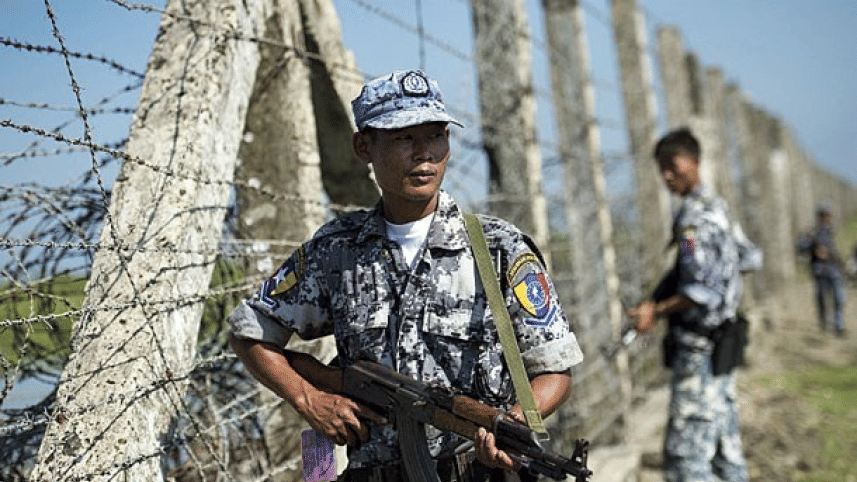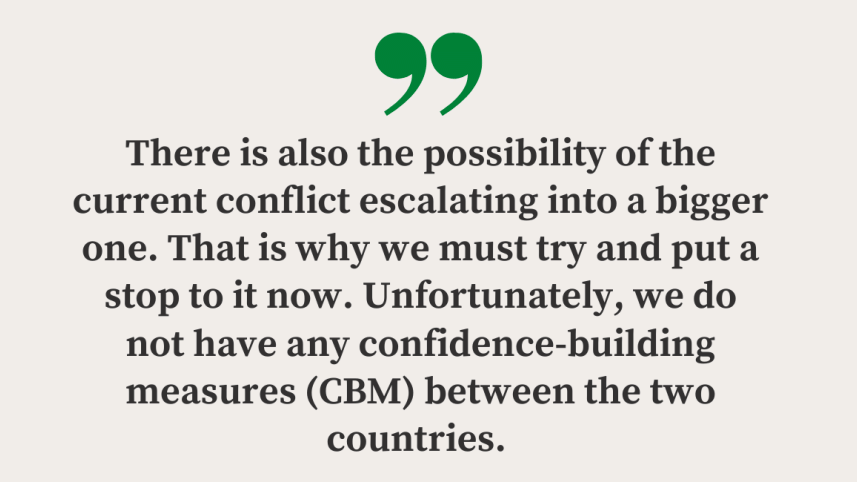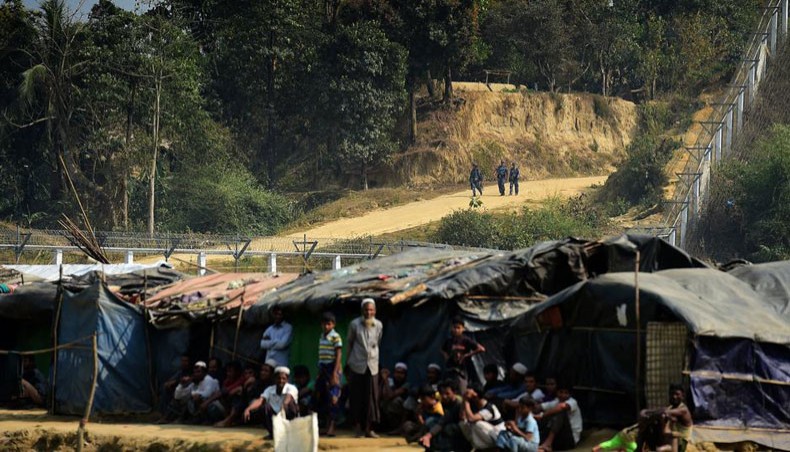We must make all diplomatic efforts to avoid direct conflict

The tension that we are seeing now at the Bangladesh-Myanmar border is nothing new. We have a history of trouble along the 271km border between the two countries – both land and maritime. For instance, in 1978, there was a border skirmish with the Myanmar military that called for mobilisation and deployment of Bangladeshi troops at the border. We nearly had a maritime conflict in 2008 as well, when Myanmar deployed its naval ships to put a Korean drilling rig in our exclusive economic zone close to St Martin's Island.
The current problem, however, started mainly with the influx of Rohingyas who fled Myanmar in 2017. Since then, we have been housing a large population of Rohingya refugees in Bangladesh, and facing a number of issues that are involved with housing such a large number of people. We need to settle these issues with Myanmar because we want to repatriate the refugees. The problem that we are observing now along the border starts primarily with the presence of ARSA and the Arakan Army in Myanmar's Rakhine state, who have been battling the Myanmar army for some time. ARSA is, however, not a strong force, unlike the Arakan Army, which has ethnic-independent aspirations in the Rakhine province and have been battling the Tatmadaw for some time now. The Arakan Army is the military wing of the United League of Arakan, which was formed in 2009. Over the last couple of years, it has grown in strength. They now have the support of the Rakhine population in large parts of the province. The Tatmadaw is worried that if the Arakan Army continues to gain strength, they may lose control in this part of the country. Hence, the current operations against it.

But the way they are violating international norms while conducting such operations is unacceptable to Bangladesh. There were several incidents earlier this month where their shells landed within Bangladeshi territory, and their helicopters and aircrafts violated our airspace and flew inside Bangladesh.
On September 16, their shells again landed in no man's land on the Bangladesh side, which killed one person and injured five others. This is a gross violation of all international norms and neighbourly relationships and of our sovereign space. It is something Bangladesh cannot accept.
Bangladesh called the Myanmar ambassador four times over the last few weeks and gave strong notes of protest. As we can see, they have not had any practical impact, because they have continued to violate our border and air space. What is worrying is that there is a chance that the conflict that is going on between the separatist forces within the Rakhine province and the Tatmadaw may spill over into Bangladesh.
There is also the possibility of the current conflict escalating into a bigger one. That is why we must try and put a stop to it now. Unfortunately, we do not have any confidence-building measures (CBM) between the two countries. Therefore, we are unable to talk to the other side during tension and conflict resolution, and in that kind of space, mistakes can happen. Fear can also overpower other actions. So, in the absence of proper CBM, the prospect of conflict escalation becomes even more real. I'm also concerned about the possibility of a new influx of Rohingya refugees from the Rakhine province, who may try to enter Bangladesh in their desperate attempt to flee the conflict zones. That possibility remains quite high.
So, what should Bangladesh do now? First of all, the current tension that we have along the Bangladesh-Myanmar border must be resolved peacefully and diplomatically. There must never be a thought that we can solve the problem militarily or through conflict. But then, only diplomatic moves are not enough. It has to be backed up by deterrents, because deterrents are what gives a biting power to diplomatic moves. I'm afraid that we are not exhibiting deterrents in the right manner to Myanmar, which is why it is not taking our protests seriously and continuing with the activities at the border that we are seeing now. Some international experts have also argued that military balances have probably tilted towards the Myanmar side, which has made it difficult for us to show the adequate level of deterrence. But we must make an effort to ensure our diplomatic moves have a strong backup.
Diplomatically, our foreign ministry has so far called the Myanmar ambassador to hand over protest notes. I don't think it has made any difference. I have heard that the foreign ministry is also going to brief the Association of Southeast Asian Nations' (Asean) ambassadors, and they will talk to other places and other capitals. But I remember that during the Rohingya influx of 2017, Bangladesh was diplomatically taken on a backfoot; that should not happen this time. What we should do is alert international actors well in advance that this is happening on our border.
More importantly, we should talk to the countries that back Myanmar. Myanmar's strength comes from three major sources of power: India, Russia, and China. We should talk to them so that they talk to Myanmar or the Tatmadaw, so that these actions are stopped immediately. And if nothing happens, we should take it to the UN Security Council and place our case there. But we must make all the efforts diplomatically, so that the problem does not escalate to the level of a conflict, and that it is resolved peacefully.
Maj Gen ANM Muniruzzaman, ndc, psc (retd) is president of Bangladesh Institute of Peace and Security Studies (BIPSS).



 For all latest news, follow The Daily Star's Google News channel.
For all latest news, follow The Daily Star's Google News channel. 
Comments